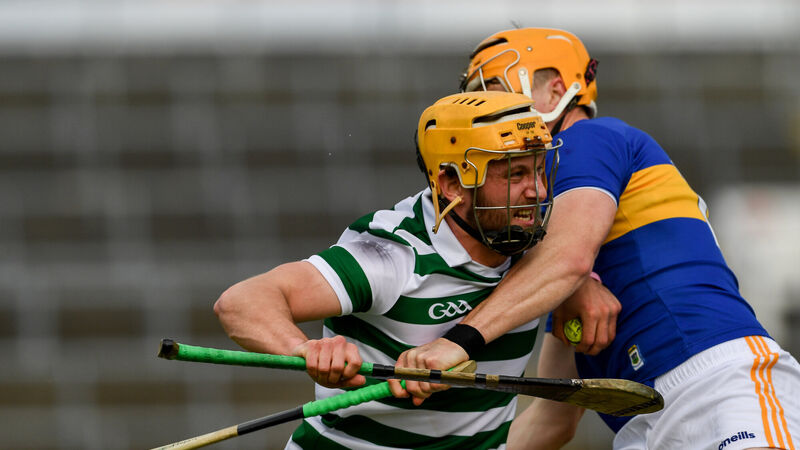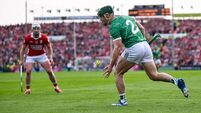Larry Ryan: Is hurling fixing something that wasn't broken?

NO WAY PAST: Limerick’s Tom Morrisey is tackled by Tipperary’s Jake Morris in last weekend’s Allianz HL Division 1 game at the LIT Gaelic Grounds. A 0-20-0-20 draw was a match played on a tactics board, writes our columnist.
At this time of great global flux, as old convictions are rattled and dunted, we must consider every possibility for a new order.
It’s all up for grabs now. These days we can’t even hear the Sky Sports Premier League song register its certainty that you’ll never stop this flame, without wondering whether, actually, the gathered protestors might be able to give it a good go.











